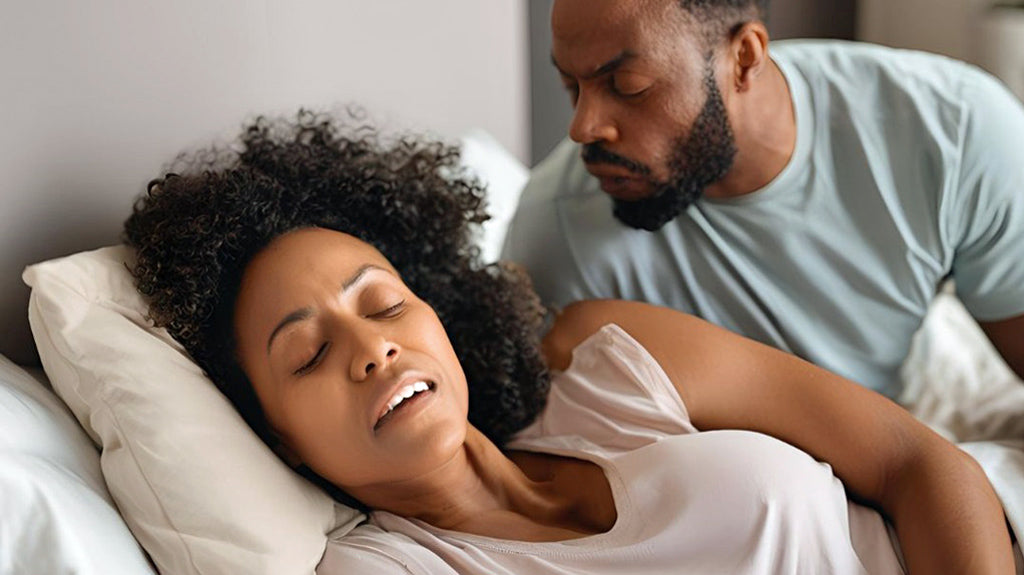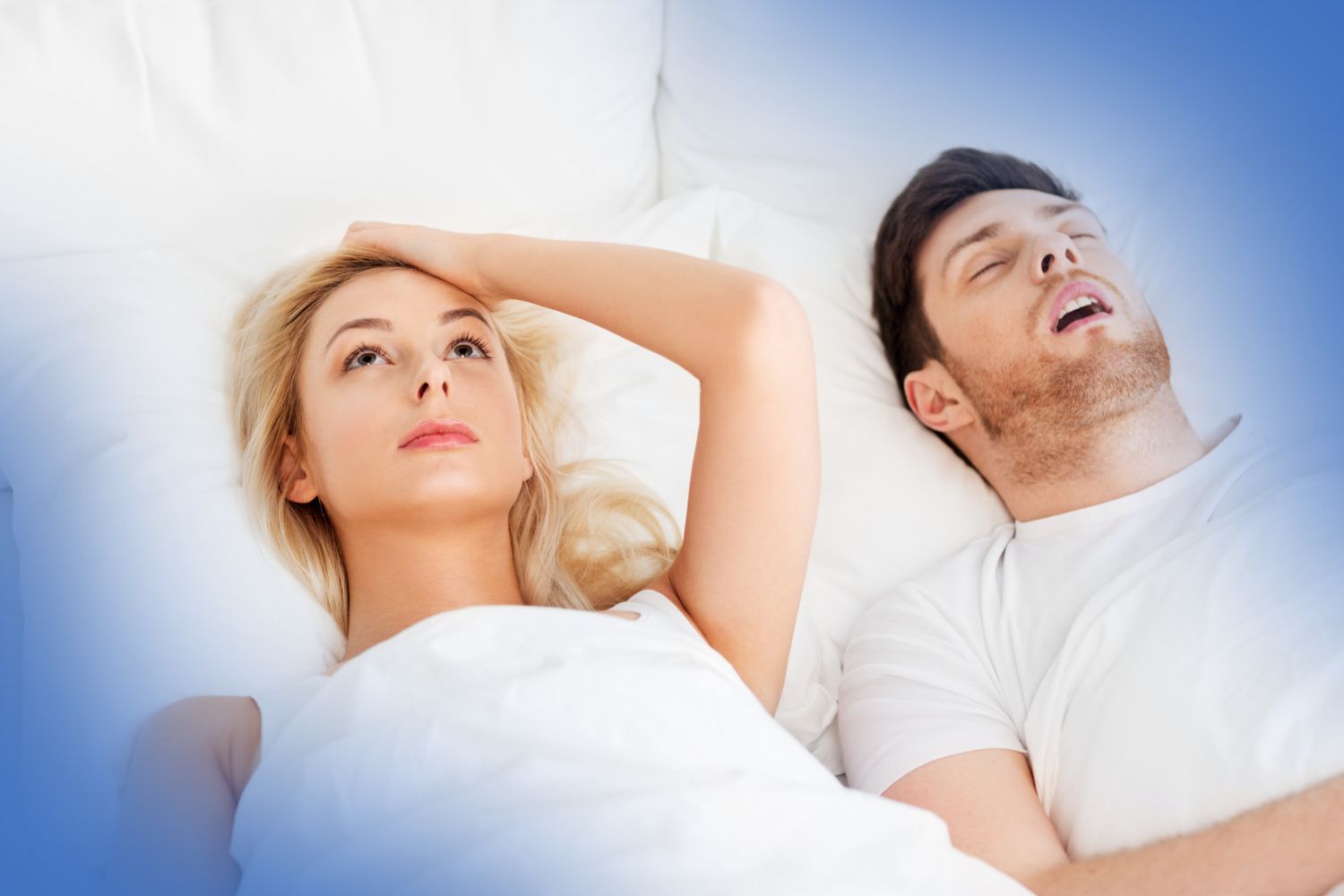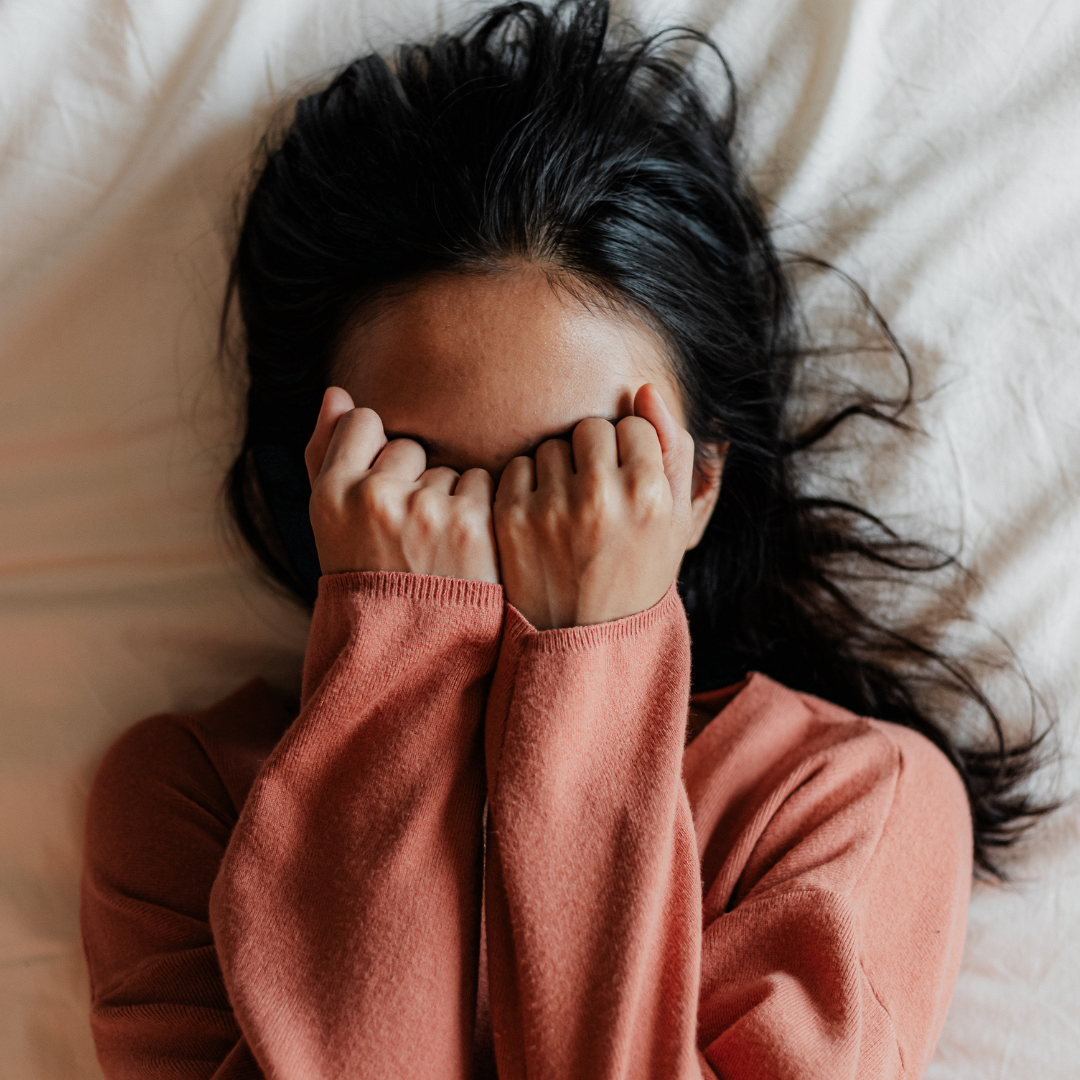Table of Contents
-
Introduction: Snoring Remedies—who needs them?
- The Widespread Woes of Snoring
- Just How Common is Snoring?
- The Ripple Effect: Health Risks of Snoring for Snorers and Sleep Partners
-
Battling the Snore: Debunking Common "Remedies" for Snoring!
- Lifestyle Changes: Can Diet and Exercise Silence the Snore?
- Sleep Positional Therapy: Can We Train Ourselves to Sleep on Our Sides?
- Medical Devices: Mouthpieces, Chin Straps, and Nasal Aids - Friend or Foe?
- Surgical Intervention: A Last Resort for Persistent Snorers?
-
The Silent War: Conquering Snoring and Reclaiming Your Sleep
- Finding Solace in the Sound: Noise Masking and the Science of Sleep
- The Power of Pink Noise: A Tailor-Made Solution for Snoring
- Beyond Snoring: Blocking Out the Impulsive Nighttime Cacophony
- SoundOff Earbuds: Reclaiming Your Sleep Sanctuary
Introduction: Snoring Remedies—who needs them?
The Widespread Woes of Snoring
Whether it’s a rhythmic rumble, a wheezy whistling or an intermittent honking – snoring disrupts sleep not only for the person snoring, but also for the “snoree” – the snorer’s unfortunate sleep partner. While snoring may seem like a minor annoyance, it’s a widespread problem with significant health and relationship consequences.
Just How Common is Snoring?
Believe it or not, snoring affects a staggering number of people. Studies suggest that over 50% of the adult population snores occasionally, with around 25% experiencing frequent snoring.
Since that translates to millions of individuals battling disrupted sleep due to their own snoring or that of a partner, the need for snoring remedies is rampant...
The Ripple Effect: Health Risks of Snoring for Snorers and Sleep PartnersThe consequences of snoring extend far beyond a restless night. For snorers, the condition can be a symptom of sleep apnea—a serious disorder where breathing repeatedly stops and starts during sleep. Sleep apnea can cascade into an array of health problems, including:
- Increased risk of heart disease, stroke, and high blood pressure
- Daytime fatigue and sleepiness
- Impaired cognitive function and memory problems
- Mood swings and irritability
For sleep partners, the constant barrage of snoring, takes a toll on their health.as well. Studies have shown that exposure to snoring can lead to:
- Sleep deprivation and daytime fatigue
- Increased stress and anxiety
- Difficulty concentrating and impaired work performance
- Increased risk of depression and relationship problems
Because snoring can also inhibit deep sleep, it may lead to an increased risk of stroke, an increased risk of Alzheimer's disease, and may contribute to overall cognitive decline, and behavioral problems.
- A 2021 study found that children who snore frequently generally exhibit worse behavior. A 2015 study published in the journal Neurology found that people with sleep apnea tend to develop memory problems and other signs of mild cognitive impairment (MCI) earlier than people without such sleep disorders.
- Wearing a dental device to reduce snoring may improve cognitive function in individuals who suffer from mild cognitive impairment.
Battling the Snore: Debunking Common "Remedies” for Snoring
With such widespread prevalence of snoring, it comes as no surprise that there's a plethora of suggested "snoring remedies" out there! Let's explore some of the most common methods and their effectiveness.

Lifestyle Changes: Can Diet and Exercise Silence the Snore?
As a snoring remedy, diet and lifestyle changes are a bit of a mixed bag…While changing our lifestyle habits doesn’t provide a guaranteed cure for eliminating snoring, some of these adjustments can significantly reduce its severity. Here's a closer look at the potential impact of diet and lifestyle habits on your nighttime snoring symphony:
Diet:
- Weight Management: Excess weight can contribute to tissue narrowing the airway, leading to snoring. Losing weight, even a modest amount, can open up the airway and reduce snoring. However, weight loss isn't always a feasible or quick solution for everyone.
- Avoiding Heavy Meals Before Bed: Eating a large meal close to bedtime can exacerbate snoring. A full stomach can push against the diaphragm, making breathing more difficult. Stick to having a light dinner at least 2-3 hours before sleep.
- Limiting Alcohol and Sedatives: Alcohol acts as a muscle relaxant, including the muscles in your throat. This relaxation can narrow the airway and worsen snoring. Similarly, sedatives and sleeping pills have much the same effect.
- Staying Hydrated: Dehydration can lead to thicker mucus secretions in the nose and throat, which contributes to snoring. Aim to drink plenty of fluids throughout the day. Avoid excessive fluids right before bed, however, to prevent bathroom trips that disrupt sleep.
Habits:
- Sleeping on Your Side: Did you know Gravity plays a role in snoring? Sleeping on your back allows your tongue and soft palate to collapse more easily, which blocks the airway. Sleeping on your side keeps these structures open and promotes better airflow. Techniques like sewing a tennis ball into the back of your pajamas can help you train yourself to stay on your side.
- Elevating Your Head: Raising the head of your bed by 4-6 inches can help keep your airway open during sleep. This can be done with pillows, or try a wedge specifically designed for this purpose.
- Treating Allergies and Congestion: Allergies and nasal congestion can narrow the airway and worsen snoring. Using a humidifier, saline nasal rinse, or allergy medication can help keep nasal passages clear.
- Regular Exercise: Staying physically active can improve overall health and potentially reduce snoring severity, but a cure-all it is not.
- Quitting Smoking: Smoking irritates the tissues in the throat and contributes to inflammation, which can worsen snoring. Think about Quitting, which offers numerous health benefits beyond reducing snoring.
It's Important to Note:
- The effectiveness of these lifestyle and dietary changes as a snoring remedy can vary depending on the severity of the snoring and its underlying cause.
- These changes may not completely eliminate snoring, but they can significantly reduce its intensity.
- If lifestyle changes don't provide enough relief, consider talking with your doctor to explore other options—like medical devices or surgical procedures.
Remember: Consistency is key. Sticking with these lifestyle changes over time can yield you better results in the war on snoring, thus benefitting your sleep quality.

Sleep Positional Therapy: Can We Train Ourselves to Sleep on Our Sides?
While not a guaranteed snore remedy, finding your ultimate sleep position can significantly impact snoring intensity. Understanding the mechanics of snoring and how gravity plays a role can help you find the most snore-free sleep position.
Why Does Sleep Position Matter?
The culprit behind snoring is often a partially blocked airway. When sleeping on your back, throat muscles relaxed, your tongue and soft palate can cause an airway obstruction. This obstruction creates turbulence as air tries to pass through, causing the vibration that produces the familiar sound of snoring.
Sleeping on Your Side: The Winner for Quiet Nights
Here's why side sleeping is so effective:
- Open Airway: Gravity helps keep your tongue and soft palate from collapsing backwards, allowing for better airflow through your throat.
- Reduced Tissue Vibration: With the airway more open, there's less tissue vibration, minimizing the snoring sound.
- Choice of Sides: There's no hard and fast rule on which side is "better" for snoring. Experiment and see which side feels most comfortable and reduces your snoring the most.
Tips for Staying on Your Side:
- Strategic Pillows: Using a body pillow or strategically placed pillows can help prop you up and encourage side sleeping.
- Be Patient: It takes time to train yourself to stay on your side. Be persistent and you'll find your body adjusting to this new sleep position.
While side sleeping is generally the most effective position for reducing snoring, there are a few other strategies you can try:
- Elevated Head: Slightly elevating the head of your bed by 4-6 inches can help keep your airway open during sleep This can be achieved with pillows or a specialized bed wedge.
- Avoid Sleeping on Your Stomach: Sleeping on your stomach can actually worsen snoring, as it puts pressure on your airway and restricts airflow.
Note: The ideal sleep position for reducing snoring may vary depending on the individual and the cause of the snoring. Experiment with different positions and strategies to find what works best for you.

Medical Devices: Mouthpieces, Chin Straps, and Nasal Aids - Friend or Foe?
When seeking a snoring remedy, many people turn to anti-snoring devices—but do they work to remedy snoring?
Mandibular advancement devices (MADs) or mouthpieces hold the lower jaw forward, widening the airway. These can be effective for some snorers, but comfort and proper fitting are essential to their effectiveness.
Chin straps prevent mouth breathing, which can contribute to snoring, but their effectiveness is limited and not everyone finds them comfortable.
Nasal strips and dilators can open up nasal passages. Their effectiveness varies, however, depending on the cause of snoring.
Then there’s the option of a device-free snore remedy—which is said to be a somewhat effective snore remedy…
Myofunctional Therapy, which is a set of mouth exercises People who regularly practice mouth and throat exercises have experienced a degree of relief from snoring. There are also studies indicating that myofunctional therapy may improve snoring associated with mild to moderate obstructive sleep apnea,
Although mouth and throat exercises may help with snoring related to obstructive sleep apnea, it should be noted that upper airway exercises are not an effective treatment for OSA. Myofunctional therapy should not replace other treatments for sleep apnea prescribed by a doctor.
Surgical Intervention: A Last Resort for Persistent Snorers?Surgery is generally considered a last resort for severe and persistent snoring. Procedures like uvulopalatoplasty (UPPP) remove excess tissue in the throat, but these surgeries can be expensive and have potential side effects.
The Silent War: Conquering Snoring and Reclaiming Your Sleep
Finding Solace in the Sound: Noise Masking and the Science of Sleep
While completely stopping someone from snoring may not always be achievable, there's a solution for getting a good night's sleep despite the noise – noise masking.
For millions of people struggling with disrupted sleep due to snoring or other nighttime noises, the concept of noise masking offers a beacon of hope. But how exactly does noise masking work, and what's the science behind its effectiveness in promoting sleep?
The Disruption Dilemma:Our brains are wired to be sensitive to changes in sound, especially during sleep. Disruptive sounds, whether a persistent snore or a sudden car alarm, can trigger the fight-or-flight response, leading to brief awakenings that disrupt sleep cycles. These awakenings, even if not fully conscious, can significantly impact sleep quality.
The Masking Marvel:Noise masking introduces a constant, low-level sound that "competes" with disruptive noises. This competition effectively reduces the perceived loudness and salience of the unwanted sounds. For instance, you’re trying to converse in a noisy room – the constant background sounds make it hard to focus on individual voices. Noise masking effectively pushes disruptive noises into the background and allows you to hear your conversation –and better yet, get uninterrupted sleep.
Beyond Simple Masking:The effectiveness of noise masking goes beyond simply drowning out disruptive sounds—it’s the perfect snoring remedy for all those “Snorees” out there with shattered nerves, losing sleep, night after night...
Studies suggest that particular types of masking sounds can also promote relaxation and sleep onset. This is where the science of sound design comes into play.
The Science of Pink Noise:
One of the most effective masking sounds for sleep is pink noise. Unlike white noise, which contains all audible frequencies at equal intensity (think static), pink noise has a specific frequency distribution. Pink noise has more energy in the lower frequencies, which our ears are less sensitive to. This creates a calming and unobtrusive background sound, perfect for masking disruptive noises without being overly loud or harsh.
Nature's Lullaby:The beauty of pink noise lies in its natural quality. Pink noise is often found in nature – think of the rustling of leaves, or the gentle pitter-patter of rainfall. These familiar sounds can trigger relaxation responses in the brain, further promoting sleep.
Clinical Evidence:Research supports the effectiveness of noise masking for improving sleep quality. Studies have shown that pink noise can:
- Reduce sleep disruptions: By masking disruptive noises, pink noise can help individuals fall asleep faster and stay asleep longer.
- Improve sleep quality: Studies suggest that pink noise can lead to deeper, more restorative sleep by reducing the number of micro-awakenings.
- Promote relaxation: The calming nature of pink noise can activate relaxation pathways in the brain, making it easier to drift off to sleep.
Noise masking, particularly with sounds like pink noise, offers a scientifically backed approach to improving sleep quality for those struggling with disruptive nighttime noises. By creating a consistent and calming soundscape, noise masking can help you achieve the restful sleep you deserve.
So, the good news is, while you’ll rarely stop someone from snoring, there’s still hope for the sleep-deprived partner of a snorer! Here's the much-needed solution: SoundOff Noise Masking Earbuds.

SoundOff Earbuds: Reclaiming Your Sleep Sanctuary
For those whose sleep is constantly disrupted by their partner's snoring, traditional methods may not provide enough relief. SoundOff Sleep earbuds offer a safe, effective, and non-invasive solution specifically designed to combat the disruptive symphony of snoring.
Here's how SoundOff Sleep earbuds empower you to reclaim your sleep sanctuary:
- Advanced Noise Masking: SoundOff earbuds utilize specially designed pink noise, scientifically proven to effectively mask the low-frequency sounds of snoring. Unlike white noise, pink noise creates a calming and unobtrusive background soundscape, allowing you to drift off to sleep and stay asleep throughout the night.
- Personalized Experience: SoundOff earbuds offer adjustable volume control, allowing you to find the perfect level of noise masking for your needs.
- A Solution for Everyone: Whether you're a light sleeper or simply struggle with a partner's snoring, SoundOff earbuds offer a reliable and drug-free solution to promote better sleep.
Beyond Snoring: The versatility of SoundOff earbuds extends beyond masking snoring. They are also effective in blocking out other disruptive nighttime noises, such as traffic, barking dogs, or a noisy partner (restless sleeper, nighttime TV watcher).
Testimonials Speak Volumes:As countless satisfied customers can attest, SoundOff Sleep earbuds are a game-changer. These innovative earbuds have helped countless individuals finally achieve a good night's sleep, leading to improved daytime energy, reduced stress, and even saved relationships.
The Final Note:Snoring may be a common problem, but a good night's sleep shouldn't be a luxury. With SoundOff Sleep earbuds, you can finally find peace and quiet, allowing you to wake up feeling refreshed and ready to take on the day. Don't settle for another restless night – reclaim your sleep sanctuary with SoundOff Sleep.


































